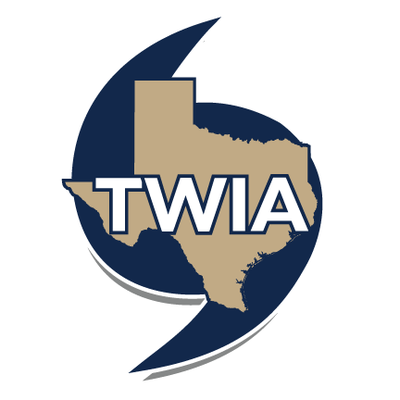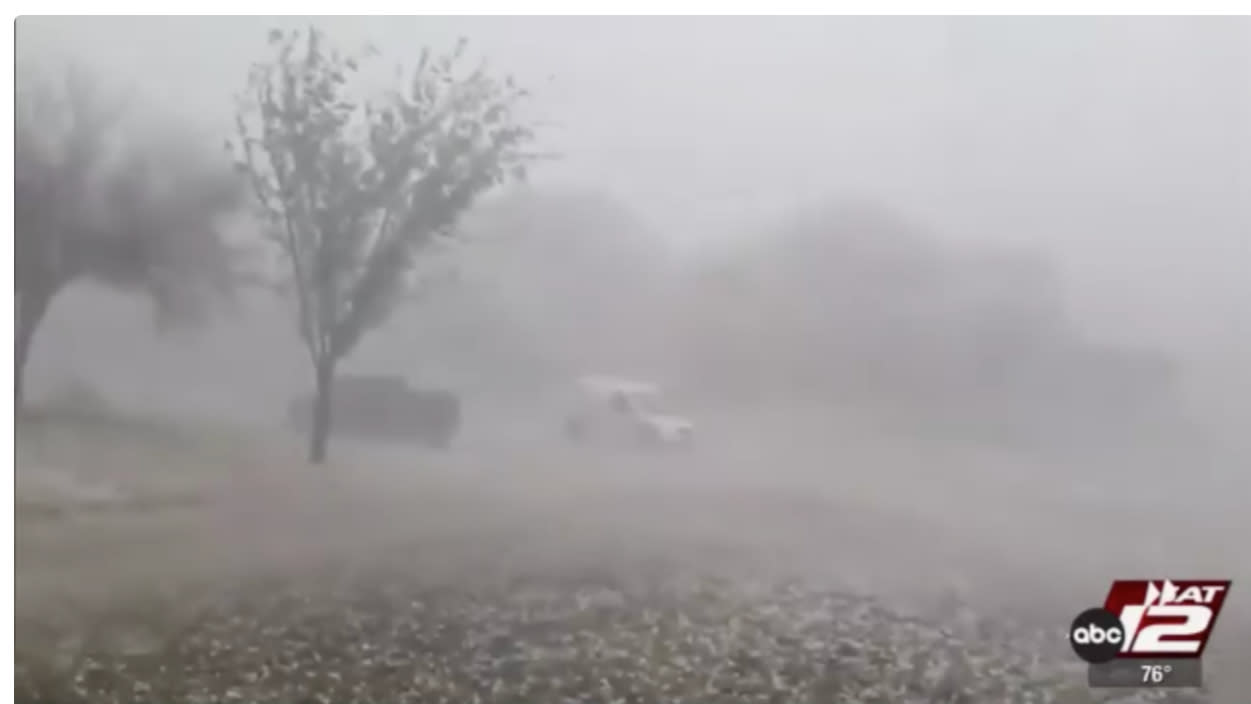Good afternoon!
For the latest updates from ICT in the insurance industry, follow us on LinkedIn and make sure to enable notifications 🔔
For more Texas-related P&C insurance information and news, visit the ICT website
|
Insights and Outcomes: ICT's 2025 Legislative Recap Now Available
|
The 89th Texas Legislative Session brought both challenges and opportunities for the insurance industry. Throughout the session, ICT tracked key legislation, advocated for our members, and worked to protect a stable, competitive market. We are pleased to share our 2025 Recap of the 89th Legislative Session, which highlights the political dynamics and includes summaries of major property and casualty bills—both passed and failed. The full report is attached and available in the Member Info Hub. Please share it with your teams, and contact us if you’d like a customized briefing for your company.
|
TWIA 2025 Rate Filing Process Begins
|
The Texas Windstorm Insurance Association (TWIA) has initiated its 2025 annual rate filing process, as required by Texas law. Each year, TWIA must submit a rate filing to the Texas Department of Insurance (TDI) by August 15. The process involves actuarial analysis, committee and board review, and public participation.
Overview
-
All TWIA rate filings are subject to review and approval by the Texas Insurance Commissioner.
-
TWIA’s Actuarial & Underwriting Committee and Board of Directors will review the proposed rate filing at public meetings.
-
Public comment is invited in writing, in person, or virtually. Meeting details are available on TWIA’s Meetings Page.
-
A two-thirds majority of the Board is required to approve a rate increase. If a Board vacancy has existed for more than 60 days, a vote on a rate increase cannot proceed. Currently, there is a vacancy for the Non-Seacoast Territory Representative.
Key Dates
-
July 1, 2025: TWIA publishes the Rate Adequacy Analysis, which assesses whether current rates are sufficient to cover expected losses and operating costs.
-
July 14, 2025: Actuarial & Underwriting Committee meets to review the analysis, hear public comment, and recommend a rate action to the Board.
-
August 5, 2025: TWIA Board of Directors meets to consider the recommendation and vote on the filing.
-
August 15, 2025: Deadline for submitting the rate filing to TDI.
-
October 15, 2025: Statutory deadline for the Commissioner of Insurance to approve or disapprove the filing.
For a visual summary of these milestones, see the full 2025 Rate Filing Timeline.
Further information about TWIA’s rates, meeting participation, and Board governance can be found at:
|
Join us in Austin for the 2025 ICT Property & Casualty Insurance Symposium
September 17–18, 2025 | Renaissance Austin Hotel
Texas’ P&C insurance market is changing fast—this is your chance to stay ahead. Don’t miss two packed days of insight, networking, and expert analysis.
Highlights include:
🔹 2025 Legislative Recap – What passed, what changed, and how it affects you
🔹 State of the Market – Trends, shifts, and what’s next for P&C
🔹 Wildfire Risk in Texas – Are we headed down California’s path?
|
2025 ICT Workers' Compensation Conference
September 15-16, 2025 | Renaissance Austin Hotel
Join us for two dynamic days of insight and innovation as we dive into the future of workers’ comp in Texas.
Highlights include:
🔹Regulatory Recap – What the latest Texas legislation means for WC
🔹 Total Worker Health – Building safer, healthier, more resilient teams
🔹 Telemedicine Trends – What's next for care delivery in WC
|
|
ICT in the News:
How to make sure your home insurance policy will absorb the financial impact of a hailstorm
|
As severe weather continues to affect Texas, the Insurance Council of Texas (ICT) advises homeowners to regularly review their insurance policies—especially before hail season. ICT spokesperson Rich Johnson highlights the importance of understanding deductibles, roof coverage, and whether a policy pays based on Actual Cash Value (ACV) or Replacement Cost Value (RCV). With roof repairs often exceeding $20,000, many policyholders may face unexpected out-of-pocket costs if underinsured.
Key Points:
-
Review Policies Regularly: ICT recommends homeowners review coverage at least twice a year to stay informed on what is and isn’t covered, especially for hail and wind damage.
-
Know Your Deductible Type: Wind and hail deductibles often differ from other perils and may be based on a flat amount or a percentage of home value.
-
Understand ACV vs. RCV: ACV policies reimburse for depreciated roof value, potentially leaving homeowners with large bills. RCV coverage offers fuller financial protection.
-
Watch for Delayed Damage: Hail can weaken shingles, leading to hidden moisture damage and long-term structural issues if left unaddressed.
-
Balance Premiums and Deductibles: Lower premiums can mean higher deductibles. ICT advises policyholders to ensure they can cover the out-of-pocket expense in the event of major roof damage.
|
|
ICT in the News:
Senate's Sweeping Tax Bill Could Strip Coverage from Nearly 12 Million Americans, Alarming Insurance
|
A Congressional Budget Office (CBO) analysis warns that the Senate’s tax and spending bill could increase the uninsured population by nearly 12 million by 2034. Albert Betts, Executive Director of the Insurance Council of Texas (ICT), commented on the potential implications for the insurance industry.
Key Points:
-
Projected Coverage Losses: The CBO estimates the bill could cause 11.8 million more Americans to lose health coverage, surpassing the House bill’s 10.9 million increase.
-
Deep Medicaid and ACA Cuts: The Senate plan proposes $930 billion in Medicaid cuts over ten years and significant rollbacks of Affordable Care Act (ACA) subsidies, impacting vulnerable populations.
-
New Work Requirements and Immigrant Coverage Restrictions: The bill imposes Medicaid work mandates and excludes about 1.4 million individuals without satisfactory immigration status from coverage.
-
Cross-Industry Effects: Betts emphasizes that healthcare costs from injuries in auto and workers’ compensation claims may be affected by changes in health coverage, creating uncertainty for P&C insurers.
|
|
Industry News:
Texas ends premium financing for TWIA policies, mandates in-house payment plans
|
Effective January 1, 2026, Texas will prohibit the use of third-party premium financing for Texas Windstorm Insurance Association (TWIA) policies. House Bill 2518, signed into law in May 2025, requires TWIA to provide no-cost installment payment plans directly to policyholders, eliminating external financing options for TWIA premiums. This change affects only TWIA policies and does not impact private windstorm insurance carriers in the region.
Key Points:
-
Premium Financing Ban for TWIA: The new law prohibits third-party premium financing for all TWIA policies issued or renewed starting in 2026.
-
Mandatory No-Cost TWIA Installment Plans: TWIA must offer its own installment payment plans at no additional cost, continuing a practice started in 2021 under Senate Bill 615.
-
Legislative Approval: House Bill 2518 passed with strong bipartisan support in both chambers before being signed by the governor.
-
Impact on Agents and Brokers: Policyholders will now coordinate payment plans directly with TWIA, removing financing options previously offered by premium finance companies.
-
Private Market Unaffected: The prohibition applies solely to TWIA policies; private windstorm insurers may continue to offer traditional premium financing.
|
|
Industry News:
Texas revamps workers’ comp insurance funding with new surcharge law
|
Effective January 1, 2026, Texas will replace its workers’ compensation “maintenance tax” with a flexible surcharge system under Senate Bill 1455. This change increases the maximum assessment rate from 0.6% to 2.7% of gross premiums, providing the Texas Department of Insurance (TDI) and the Division of Workers’ Compensation with enhanced funding for regulation, fraud prosecution, and oversight. The new surcharge aims to stabilize regulatory funding while reducing retaliatory taxes on Texas insurers writing policies in other states.
Key Points:
-
Surcharge Replaces Maintenance Tax: Senate Bill 1455 updates the terminology and structure, replacing the “maintenance tax” with a “surcharge” system starting in 2026.
-
Increased Funding Capacity: The maximum combined surcharge rate rises significantly—from 0.6% to 2.7% of gross premiums—to better support regulatory and anti-fraud efforts.
-
Flexible Annual Adjustments: TDI and the Division of Workers’ Compensation can adjust the surcharge yearly within the cap to align with funding needs.
-
Cost Recovery Options: Insurers may recover surcharge costs through rate filings or pass them directly to policyholders; self-insured employers are also subject to assessments based on claims and administrative expenses.
-
Reduces Retaliatory Taxes: Reclassifying payments as surcharges aims to minimize retaliatory tax burdens Texas insurers face in other states, promoting competitive fairness.
|
Check out all things ICT!
|
The Insurance Council of Texas (ICT) is on the lookout for knowledgeable and engaging speakers for our 2025 events! We are looking for experts to discuss industry trends at our upcoming gatherings, including:
- Quarterly ICT Webinar Series
- Workers' Comp Conference: September 15-16, 2025
- P&C Insurance Symposium: September 17-18, 2025, in Austin, TX
We’re seeking speakers to cover critical industry trends, topics such as:
- Emerging topics and innovations
- Legal developments affecting insurance
- AI and technology: challenges and opportunities
- Resiliency strategies for businesses and communities
- Insights on the future of the insurance industry
If you have suggested topics, would like to request a speaker or would like to present at one of ICT's events, click here to let us know.
|
Enjoying this newsletter? Feel free to share it with your colleagues! Just a reminder: The ICT News to Know is a benefit exclusive to ICT members and we ask you not share outside your organization.
|
|














